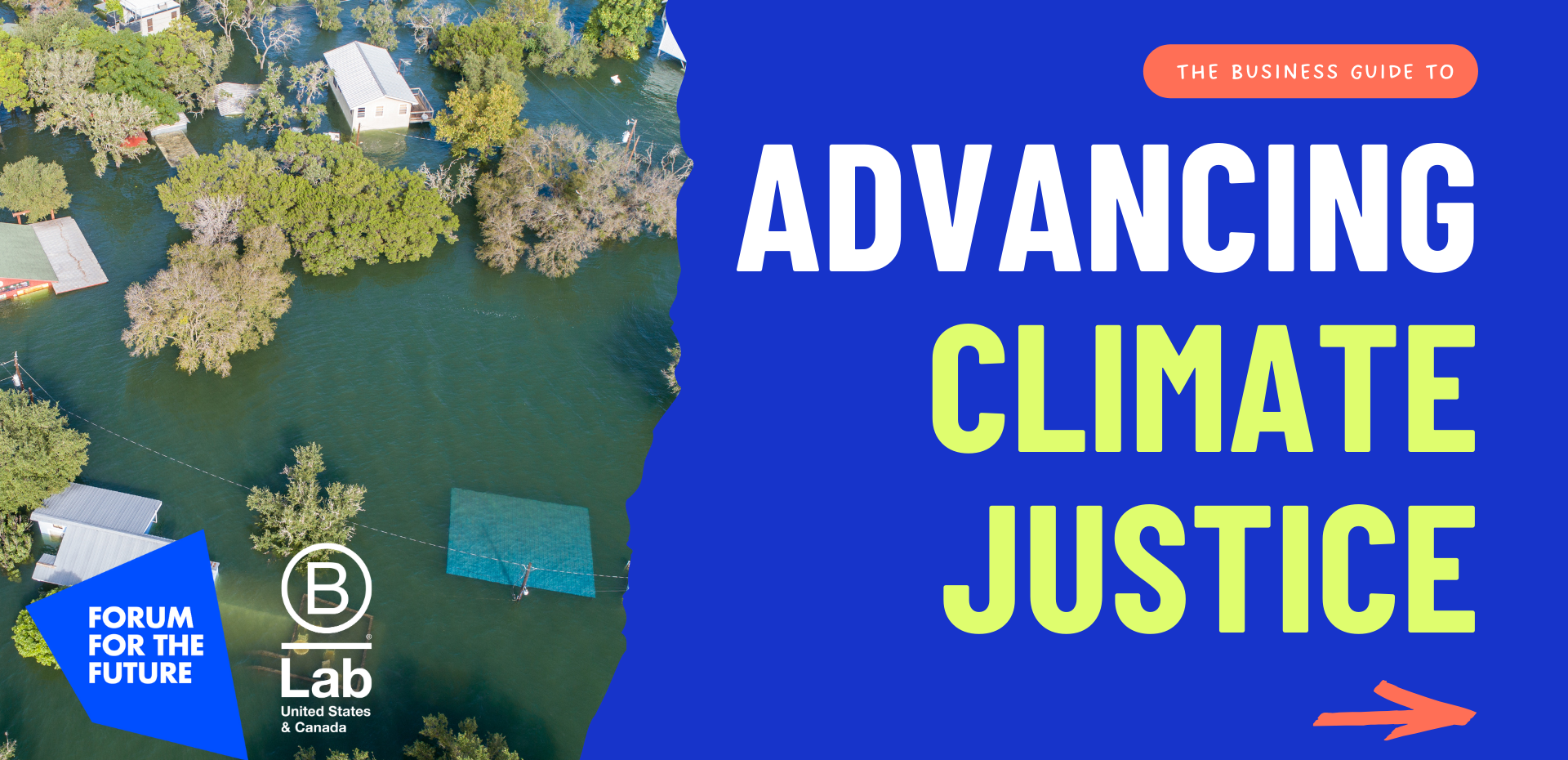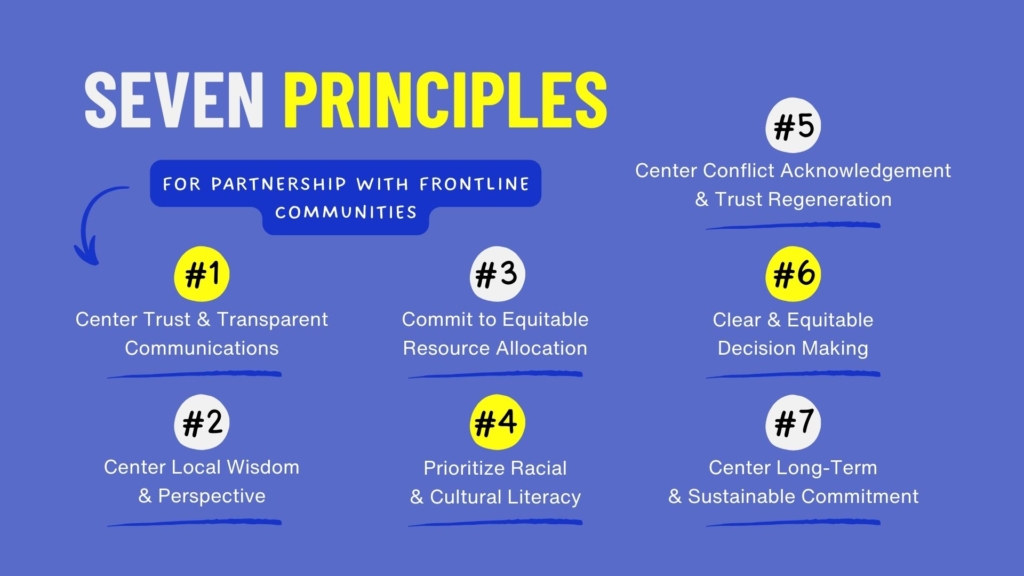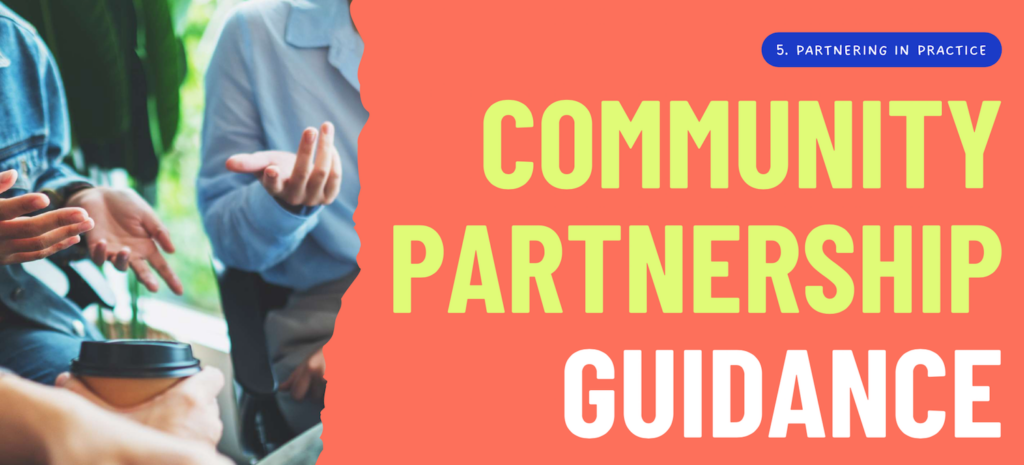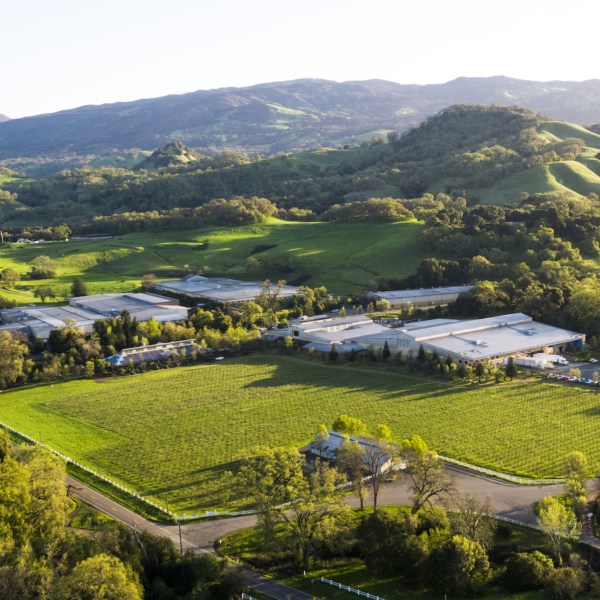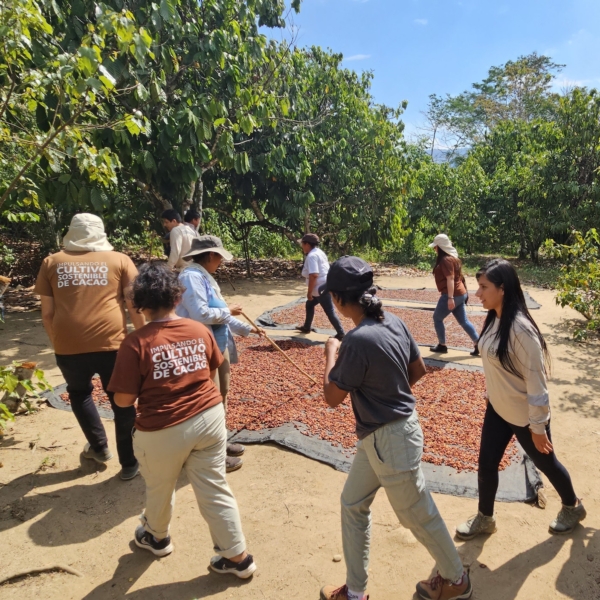A New Guide to Help Businesses Advance Climate Justice
April 25, 2024
Resources for Business Leaders Include Principles for Partnership with Frontline Communities
Billions of dollars are invested annually in climate solutions, but only a small percentage is allocated to support the frontline communities most vulnerable to its impacts. In the face of intensifying climate change, some Certified B Corporations and other impact-minded businesses want to embrace equity-centered solutions but need to figure out how to establish partnerships or effectively use their sphere of influence.
The newly released Business Guide to Advancing Climate Justice can serve as a resource for business leaders, changemakers, and others committed to centering equity and justice in their climate action efforts. The guide was created in partnership with Forum for the Future, B Lab Global, and B Lab U.S. & Canada.
Business leaders can find actionable steps related to their operations, policies, finances, products and services, and other areas to advance climate justice and begin to foster community resilience.
In the foreword, Kylie Nealis of B Lab U.S. & Canada and Ksenia Benifand of Forum for the Future said the guide provides practical guidelines for business action in partnership with frontline community members. “Through a series of interviews and workshops with frontline community leaders and experts, we have heard about the hopelessness, fear, anxiety, loss of income, displacement, damage to property, and deteriorating health that people are experiencing, along with a wide range of other injustices that intersect with the climate crisis,” they said. “We also heard that progress is slow and solutions are not directly benefiting communities, with the people affected first and worst feeling unheard and left out. We’ve woven many insights from these conversations into this guide.”
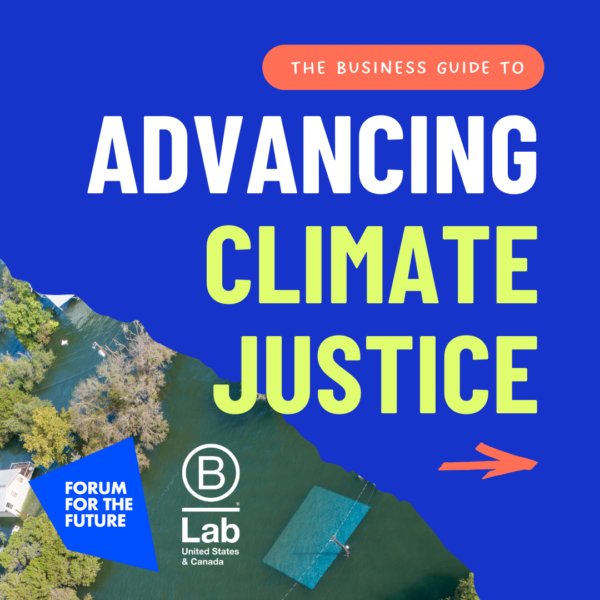
A Guide for Business Climate Justice
This guide is designed for businesses that are working to address the climate crisis, no matter how far along they are on their journey, by using equity-centered solutions.
Building Equitable Partnerships with Frontline Communities
In the winter of 2023, frontline community leaders and employees of B Corps came together through a facilitated co-creation process around B Lab U.S. & Canada’s climate justice work. From this process, B Lab U.S. & Canada developed the Principles for Partnership with Frontline Communities. Additionally, the Forum for the Future and B Lab teams interviewed more than two dozen frontline community leaders based on trust, respect, curiosity, honesty, and a willingness to have uncomfortable conversations.
Businesses can use the principles to consider how to build and nurture equitable partnerships with frontline communities and help create a more just and thriving future.
“We heard there is a lack of knowledge on where and how to take action for meaningful impact,” Nealis and Benifand said. “We have also heard from businesses beginning to embrace and prioritize climate and environmental justice as part of their climate action goals and strategies.”
Principle 1: Center Trust and Transparent Communications
Centering trust and transparent communication will move the private sector away from the extractive and exploitative norms of business and towards equitable relationships. Businesses can foster trust by actively listening to community partners with curiosity and good faith, being transparent about expectations, intentions, and values, and getting specific about the time and resources they must put into shared projects.
Principle 2: Center Local Wisdom and Perspective
Moving at the speed of trust, we actively listen before exploring how local wisdom intersects with systemic solutions inspired by Western science and institutions. We expand our perception of what solutions are valued and focus on co-creating pathways that address both immediate needs and longer-term systems change.
Principle 3: Commitment to Equitable Resource Allocation
Acknowledge power and resources and redistribute them to serve the local community best. Resources may encompass money, time, in-kind donations, and political influence, amongst other forms of power. There are stark resource disparities between large companies and grassroots-frontline communities. With this commitment, businesses move away from a top-down power dynamic towards partnerships that redistribute power and resources in tangible and equitable ways.
Principle 4: Prioritize Racial and Cultural Literacy
Businesses are accountable for their own motivation, learning, and continuous commitment to being grounded in racial and cultural literacy. This accountability is imperative to build between partnering organizations and move collectively toward the larger vision of a just and equitable society.
Principle 5: Center Conflict Acknowledgment and Trust Regeneration
Center conflict acknowledgment and trust regeneration through active listening and by taking accountability for missteps. When missteps occur, move into the action of conscious repair using restorative justice frameworks.
Principle 6: Co-Develop Clear and Equitable Decision-Making Processes
Co-develop clear and equitable decision-making processes that meet the needs of all partners. In partnerships, move towards diverse, intersectional, culturally aware, trust-based decision-making. All parties should understand how a project comes to life, moves forward, and has shared goals, as well as who is responsible for which pieces. Decision-makers from participating organizations are accountable, present, engaged, and capable of creating change and taking action to ensure impact with respect and reverence for one another’s time and energy.
Principle 7: Center Long-Term and Sustainable Commitment to Ensure Our Collective Survival
Pursue long-term and sustainable commitments for the collective survival and liberation of people and the planet. Understand that short-term investments cause harm and are often focused on image and virtue signaling. By creating long-term partnerships that extend beyond typical corporate program timelines, businesses can consider the sustainability and impact of the collaboration.
Partnering in Practice: Guidance for Implementation
Building on the Principles for Partnership with Frontline Communities, the guide offers suggestions for applying them to climate justice work with frontline communities. It includes insights from leaders of climate advocacy groups and other organizations that work with frontline communities.
Suggested actions begin with taking stock internally before exploring community partnerships. Businesses can then start to build healthy and just relationships and move on to implement co-designed programs. “Your bottom line starts with your neighbors; you must be mindful of the full impact on people and communities,” said Michele Roberts of the Just and Natural Climate Platform.
Businesses can incorporate intentional engagement, value lived experience, and take ownership of learning to build healthy and just relationships with community groups. “Let the community set the tone and set the pace of the relationship,” said Jacqueline Lee-Tam of Climate Justice Organizing Hub Canada.
The guide explains climate justice concepts such as establishing a shared vision, prioritizing joint decision-making, and fostering transparency with documentation. “We need leaders that are experiencing the harm to be the ones coming up with the solutions,” said Ozawa Bineshi Albert, a climate justice organizer.
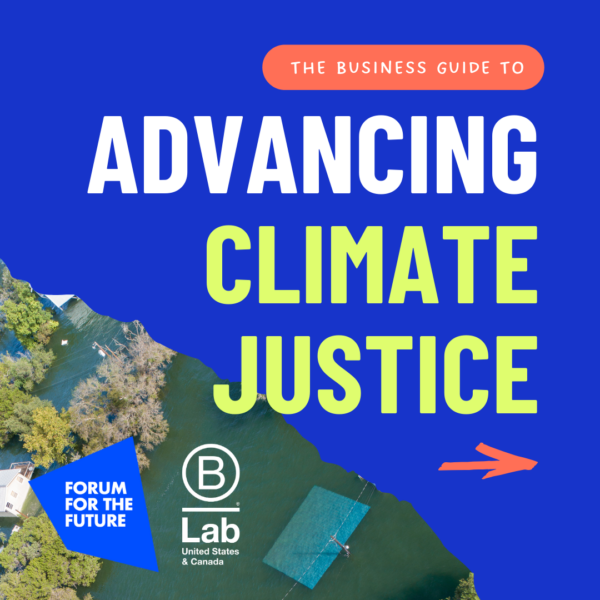
A Guide for Business Climate Justice
This guide is designed for businesses that are working to address the climate crisis, no matter how far along they are on their journey, by using equity-centered solutions.
Sign Up for our B The Change Newsletter
Read stories on the B Corp Movement and people using business as a force for good. The B The Change Newsletter is sent weekly.
